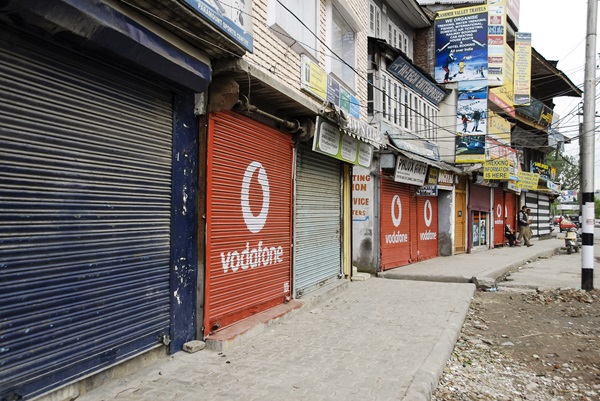.png)

Krishnadevan is Editorial Director at BasisPoint Insight. He has worked in the equity markets, and been a journalist at ET, AFX News, Reuters TV and Cogencis.
May 16, 2025 at 8:37 AM IST
India’s telecom saga has always had a flair for the dramatic, but the latest act is particularly intriguing. With the government, now holding a hefty 49% stake in Vodafone Idea, it finds itself in an awkward position--part owner, part bystander, and, increasingly, part scapegoat.
This wasn’t a calculated investment or a bold strategic move; it was more of an accidental acquisition, forced by a massive equity swap for unpaid dues. And, it appears the issue is far from resolved.
Vodafone Idea is back in the Supreme Court, seeking fresh relief on its adjusted gross revenue dues and pointing out, with a hint of irony, that the government as a “partner” is unable to help because of the very court it now petitions.
On paper, the government’s equity conversion was supposed to stabilise the sector, prevent a duopoly, and give Vodafone Idea a fighting chance. In practice, it has created a peculiar power dynamic.
The government is the largest shareholder, but it can’t act in the company’s interest without court approval because of the court’s judgement. Vodafone Idea’s legal plea leverages this, suggesting that government ownership should count for something in the eyes of the law.
This is not a question of policy. The 2021 telecom reforms already addressed issues like excluding non-telecom revenue from AGR calculations. Media reports suggest that the government is considering financial relief on issues related to interest and penalties.
The real issue is accountability in Indian business. It’s basic financial prudence to provide for contingent liabilities. Litigating liabilities with the intent to frustrate the creditor is a systemic weakness. When companies can convert dues into government equity, and then use that relationship to seek judicial relief, the incentives for financial discipline begin to unravel.
This playbook risks turning the government into a perpetual shock absorber for corporate risk, with the exchequer left holding the bag. The irony is hard to miss.
The government’s intervention to prevent market collapse is now being used as a leverage in legal battles. Vodafone Idea’s argument appears to be a strategic gambit that could set a precedent for other struggling firms with state equity on their books.
If courts are persuaded, similar petitions could soon surface across sectors, from mining to banking, each using government ownership as a lever for further concessions. Bharti Airtel is already exploring the idea of a similar arrangement for its own dues of ₹410 billion to the government.
When companies realise that unpaid dues can be converted into government equity, the incentive for discipline evaporates.
Equity swaps and bailouts are meant to be tools of last resort, deployed with clear conditions and robust oversight. Without strong institutional guardrails, the lines between genuine rescue and reward for failure blur dangerously.
So what is the way forward? If the government holds equity in bail-outs or loan settlements, it should do so with stringent, transparent conditions that link its stake to performance milestones and real oversight powers. The Companies Act’s requirement for issuing shares at face-value, even when the market price is lower, needs to be amended. Vodafone issued 36.95 billion shares to the government at ₹10 per share in April when the market price was below ₹8 per share. More importantly, how courts interpret government bailouts will determine whether judicial relief becomes a default corporate strategy.
At the end of the day, if bailouts morph into routine rescues, market discipline erodes. The government is not just an investor here. It is, increasingly, a hostage to its own good intentions. Unless a firm line is drawn between genuine rescue and opportunistic relief, the exchequer will keep paying for corporate misadventures.




